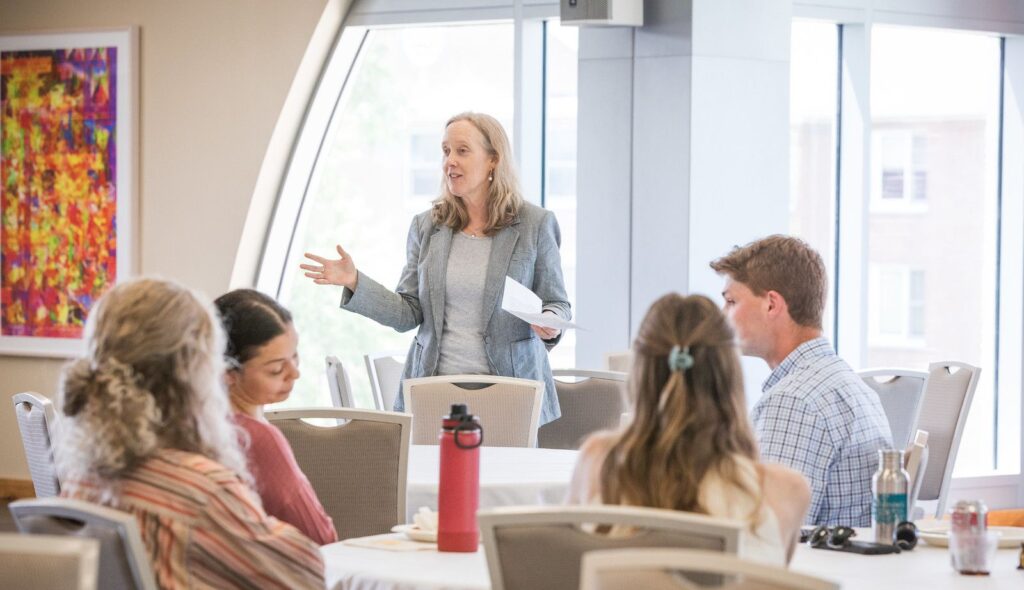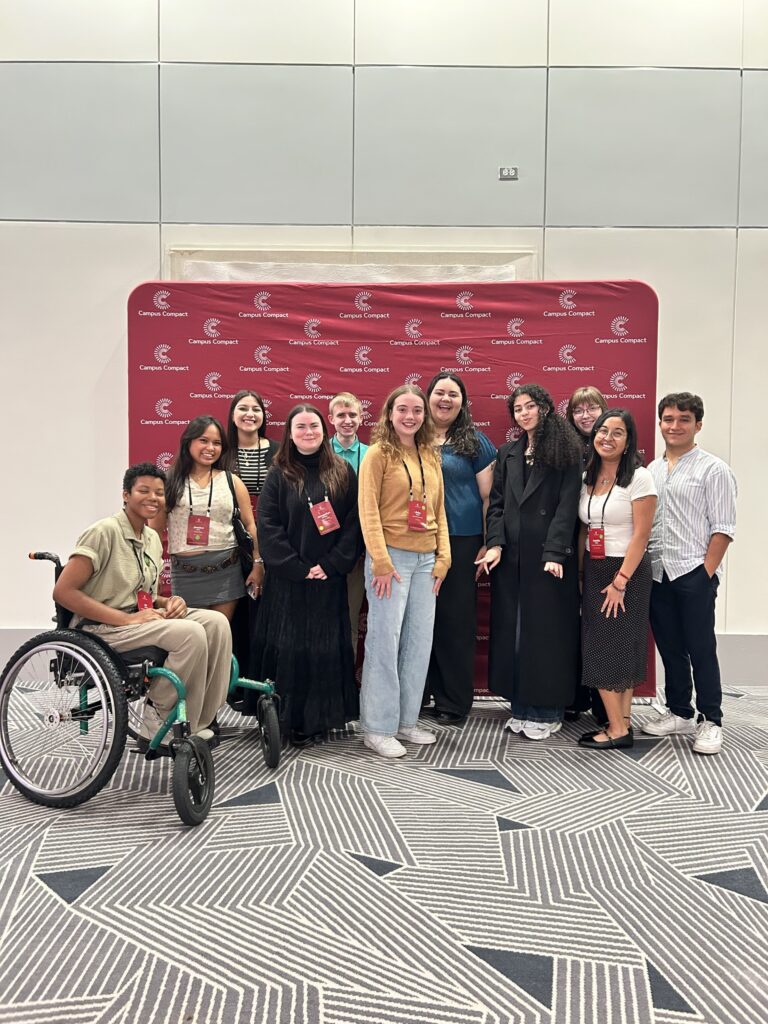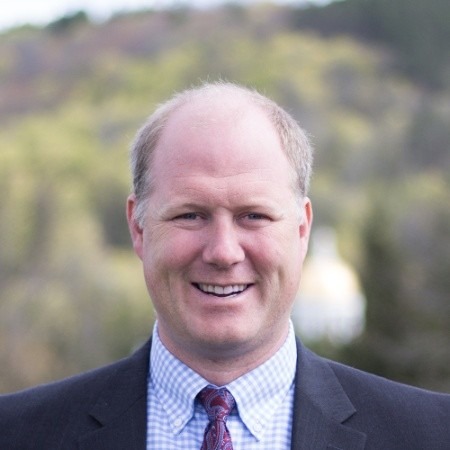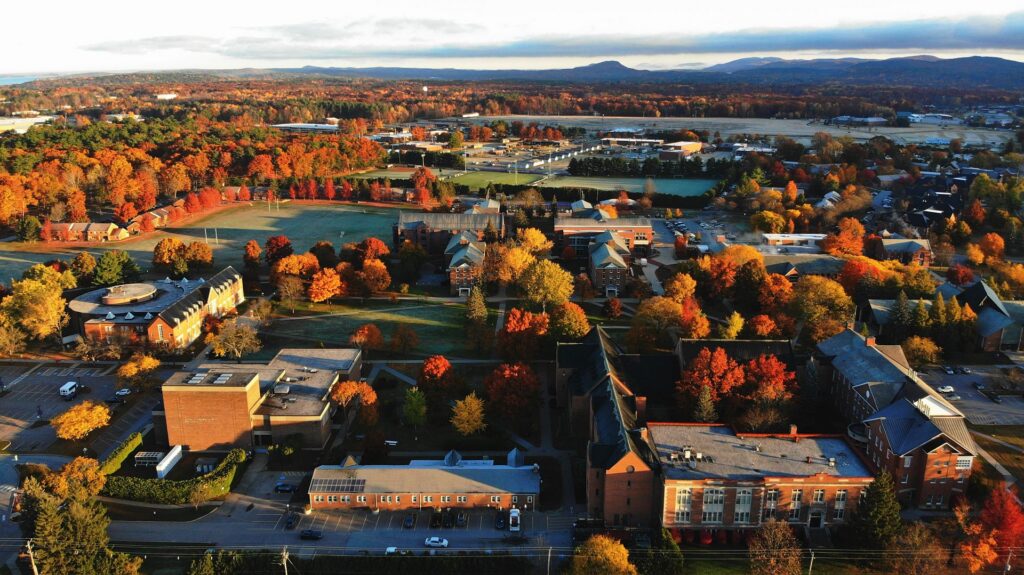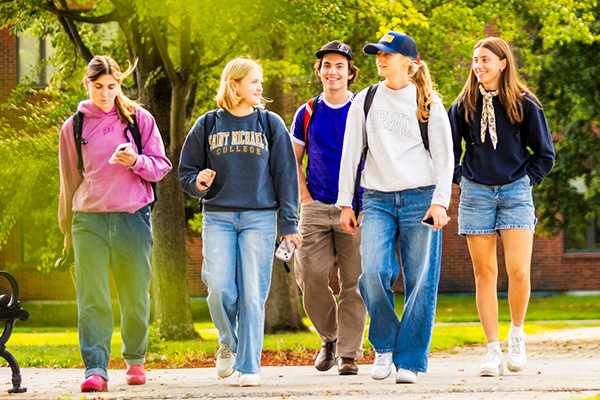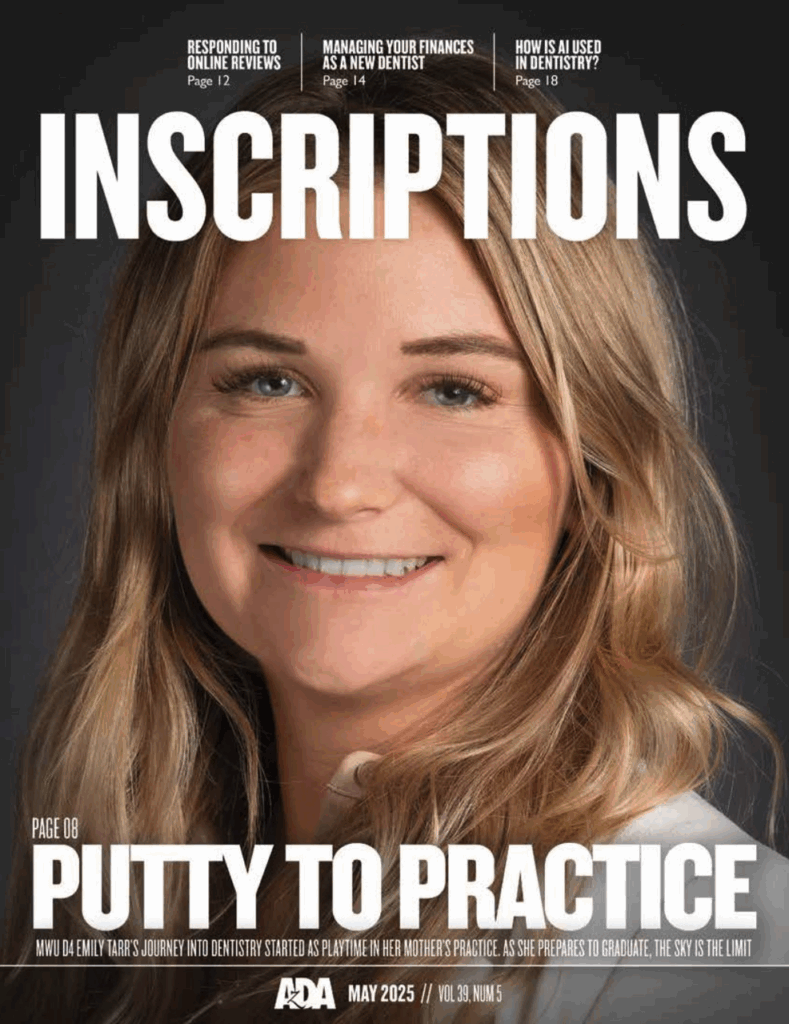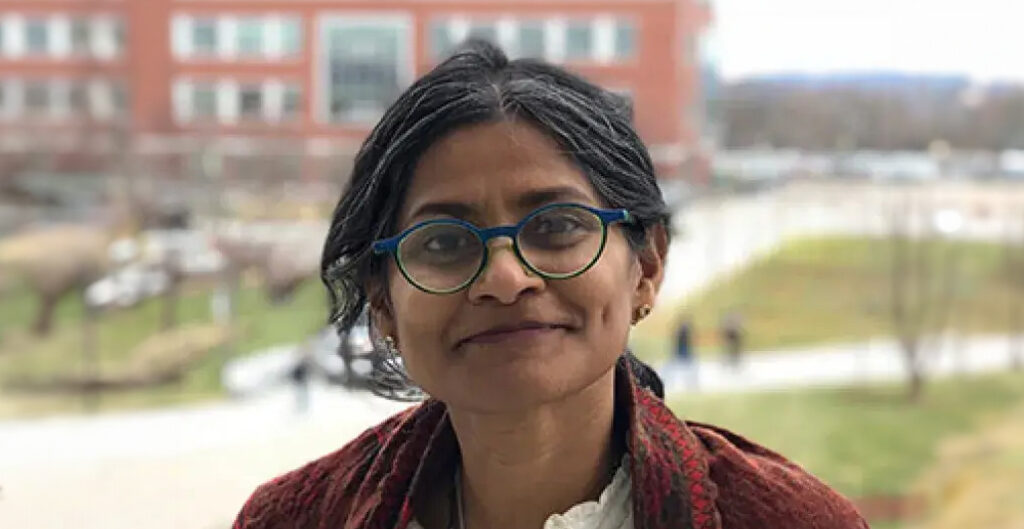On Tuesday, June 4, students and professors gathered in the Roy Room to offer some insight into their summer research projects. From student-athlete mental health and historical beliefs about crime to immunoprecipitation and environmental paleolimnology, students are performing important research on a variety of topics and questions facing the world today.
Many of the projects are funded by grants from the Vice President for Academic Affairs Office, while some are funded through outside grants, including through the Vermont Biomedical Research Network. Students and their faculty mentors apply for the grant funding and work together throughout the summer to complete the research. Each student will present their research findings during the upcoming academic year.
Below are descriptions of each research project happening on campus during the summer of 2024.
“How does Farm Consolidation around the United States impact Climate Change?”
Benjamin Riggs ’26
Major: Business Administration
Mentor: Professor Patrick Walsh (Economics)
Riggs is conducting research on farm consolidation around the U.S., exploring how it impacts climate change. Over eight weeks, Riggs will compare data on water use and the number and size of farms, analyzing the environmental impacts of farming as the country shifted from small farming practices to sizable commercial farming. Riggs aims to find conclusions on whether farm consolidation across the U.S. has led to increased water use per acre and the environmental impacts this may have on climate change.

Elsa Gordon ’27 explains her summer research project during a research kickoff event on June 4, 2024. (Photo by Cat Cutillo/Saint Michael’s College)
Research collaboration with UVM SOCKS
Elsa Gordon ’27
Majors: Data Science and Environmental Studies
Mentor: Professor Candas Pinar (Sociology)
In collaboration with research done by the University of Vermont SOCKS (The Science of Online Corpora, Knowledge, and Stories), Gordon will gather and analyze text data from different sources, including Governor Phil Scott’s press conferences, and Vermont-specific Twitter and Reddit data. “The SOCKS team has developed a set of computational tools to measure the sentiment and stories across a diverse pool of written texts,” Gordon said. Through these tools and other qualitative research methods, Gordon aims to measure Vermonters’ sense of community or connectedness during the COVID-19 pandemic.
Innovative ways to measure blue-green algae
Shannah Weller ’27
Major: Biology, minor in Physics
Mentor: Professor Clay Williams (Environmental Studies and Science)
Professor Williams has designed a machine that will help monitor blue-green algae levels in nearby bodies of water. In collaboration with the University of Vermont, Weller will be part of the construction of some parts of this machine over the summer, along with collecting samples at five different Lake Champlain sites. In the end, Williams and Weller want to find a better way to spot the signs of blue-green algae blooms before they are dangerous to the public. “Green algae produces toxins, and is often the cause of beach closures over the summer months, posing a risk for people, pets, and more,” Weller said. “The goal is to make a more efficient, affordable, and 24/7 way to monitor blue-green algae levels because as of now, it is mostly done through volunteer efforts.”

Alexa Roux ’26 explains her summer research project with Professor Clay Williams during a summer research kickoff event on June 4, 2024. (Photo by Cat Cutillo/Saint Michael’s College)
“Environmental Paleolimnology in Saint Michael’s Natural Area Waterbodies”
Alexa Roux ’26
Majors: Chemistry and Environmental Science
Mentor: Professor Clay Williams (Environmental Studies and Science)
Through testing of four freshwater bodies in the natural area, Roux’s research will use paleo-ecotoxicology to determine how past anthropogenic contamination in the aquatic sediment influences the current water quality. “Because natural freshwater bodies are often at the lowest point of elevation, all of the man-made contaminants run through flooding and precipitation into these lakes. These contaminants build up in layers, which can be indicators of the lake’s health,” Roux said. Roux will compare the current state of the water to the historical record of its sediment.
“Can Geographical Informational Systems (GIS) Enabled Mapping Accelerate Organic Farm Certification?”
Preston Hewett ‘25
Major: Environmental Science
Mentor: Professor Clay Williams (Environmental Studies and Science)
In collaboration with the Northeast Organic Farming Association of VT (NOFA-VT), Hewett will be transforming paper maps into interactive maps using geographical informational systems. The goal is to make the maps more accurate, spatially aware, and dynamic. “My personal goal is to further grow these organic operations, because even though it is more expensive than conventional farming, it is a better, sustainable way to go in the future,” Hewett said. This research will test the feasibility in using dynamic maps during federal organic farm inspections, lessening the time taken to verify organic production practices.
View photos of the summer research kickoff event by Cat Cutillo, below:
“The Politics of Climate Change and Human Migration”
Olivia Francisco ‘25
Majors: Environmental Studies and Political Science
Mentor: Professor Shefali Misra (Political Science)
Francisco will investigate how climate change has had an impact on political stability and international relations through human migration patterns in Central and Eastern Africa. Francisco plans to analyze quantitative and content migration data, in addition to political discourse on environmental migration. This study aims to give insight into how vulnerable populations are affected by displacement in the context of climate change-related crises.

Colby Fane-Cushing ’25 describes his ongoing research that he plans to continue during the summer of 2024 during a research kickoff event on June 4, 2024. (Photo by Cat Cutillo/Saint Michael’s College)
Studying stress in student-athletes
Colby Fane-Cushing ‘25
Major: Neuroscience
Mentors: Professor Melissa VanderKaay Tomasulo (Psychology) and Professor Dagan Loisel (Biology)
For the past year, Fane-Cushing worked on a questionnaire research study, asking student-athletes a variety of questions related to their own perceptions of their stress and anxiety levels. Findings from this questionnaire will be used for a longitudinal study that tests the impact of virtual reality meditation on student-athletes’ stress levels. Over the summer, Fane-Cushing will be working on an institutional review board proposal, so that by the time the fall semester begins, his future research project can launch. “In past research projects with Professor Tomasulo and Loisel, VR meditation has been shown to be successful in reducing self-perceived stress,” Fane-Cushing said. With this project, Fane-Cushing aims to replicate these results, this time with student-athlete participants. Both self-perception and biological measures, such as heart rate and blood pressure, will be used in this study. As a student-athlete himself, Fane-Cushing said, “It is important that our student-athletes can perform at their best and our study will hopefully show that training the mind is as important as training the body.”
“New, Naturally-Derived Food Preservatives”
Ken Zou ‘26
Major: Chemistry
Mentor: Professor Mark Scialdone (Chemistry)
Zou is working to synthesize new derivatives of phytocannabinoids and hopes that by the end of the project, they can be used as natural preservatives. Zou is using strawberries and bagels to test this possibility, observing how long mold takes to form on these foods. “Ken made six new derivative compounds in just two weeks, which already exceeded our expectations,” Scialdone said.
“Developing and Running an Immunoprecipitation Assay for the Binding Partners of X-MAID Moesin in T cells”
Gavin Graham ‘25
Major: Biochemistry
Mentor: Professor Lyndsay Avery (Biology)
X-Linked Moesin Associated Immunodeficiency (X-MAID) is a genetic disease associated with lymphopenia, neutropenia, and bacterial infections, affecting T cells and T cell migration. Graham will develop an immunoprecipitation assay to better understand one of the specific mutations of moesin, and how it can affect T cell function. He hopes that a better understanding the mutation will help in effectively treating the X-MAID disease and mitigate patients’ symptoms.
“Analyzing the Effect of X-MAID Mutant Moesin Expression in T cell During Mitosis”
Olivia Goldfarb ‘27
Major: Biology
Mentor: Professor Lyndsay Avery (Biology)
Goldfarb will study how the X-MAID mutation of T cells affects the final stage of mitosis (cell division), or telophase, as compared to a control group of healthy moesin. A healthy moesin protein allows for the effective division of T cells. Understanding these underlying mechanisms can help provide better insights into the role of moesin in T cell biology. X-MAID is a serious immunodeficiency illness, and with this research, Goldfarb hopes her findings will aid the treatment of X-MAID, having a direct impact on patients, and improving their quality of life.
“Perception and Purpose: A Catalog of the Modern History of Israelis and Palestinians”
Isabella Cronin ’25
Major: International Relations
Mentor: Professor M.J. Bosia (Political Science, International Relations, Gender & Sexuality Studies)
After studying abroad in Jordan, Cronin paid close attention to regional media as violence between Israel and Gaza escalated last fall. She compared those narratives to Western media and found different narratives. With this research, Cronin aims to pull together Israeli and Palestinian views on major historical events, such as the Nakba. Cronin aims to create an online catalog defining terms such as “genocide,” “settler colonialism,” “Zionism,” “diaspora,” “Palestinian liberation,” “right to defense,” and more. Cronin will be working on an interactive catalog with descriptions, definitions, historical context, a timeline of events, and key figures.
“Transcribing Early American Documents Relating to the Founding of the Virginia State Penitentiary”
Julianne Giordano ‘27
Majors: History and Secondary Education
Mentor: Professor Alexi Garrett (History)
Giordano is transcribing Virginia State Penitentiary documents, such as letters and criminal records dating back to the first two decades of the 1800s, which are related to Professor Garrett’s research. In this research, she will be paying special attention to indications of racial and gender bias within the prison. Giordano will be translating information about convicted criminals into charts, and produce a cumulative paper. Findings will provide research for a chapter of Professor Garrett’s book, and to co-write a journal article.
“How do College Campuses Respond to Students’ Mental Health Crises?”
Damien Wortheim ‘26
Majors: Psychology and Equity Studies
Mentor: Professor Sarah Nosek (Psychology)
For this research, Wortheim will explore how college campuses support student mental health through their apporach to crisis intervention. By performing content analyses on colleges’ response protocols from several departments, Wortheim’s research will support Clinical-Counseling Psychology graduate student Kaitlyn Root’s master thesis on crisis intervention on college campuses. Wortheim will be in charge of early stage research, such as content analysis and archival research, looking at how different universities’ approach mental health crises.
“The Other Side of the Story: Healthcare Providers’ Perspectives on Chronic Pain”
Lauren Welch ‘25
Major: Psychology
Mentor: Professor Sarah Nosek (Psychology)
Through interviews with healthcare providers, Welch will explore their perspectives on interacting with and treating chronic pain patients. Topics of exploration include perceptions of chronic pain, ways of communicating with patients, and challenges of managing and treating chronic pain. Welch expects her findings will show that the relationship between chronic pain patients and their healthcare providers is impacted by both interpersonal factors and systemic challenges. With this research, Welch hopes to uncover important issues that if addressed, could greatly improve well-being both for patients and providers.

For all press inquiries contact Elizabeth Murray, Associate Director of Communications at Saint Michael's College.
